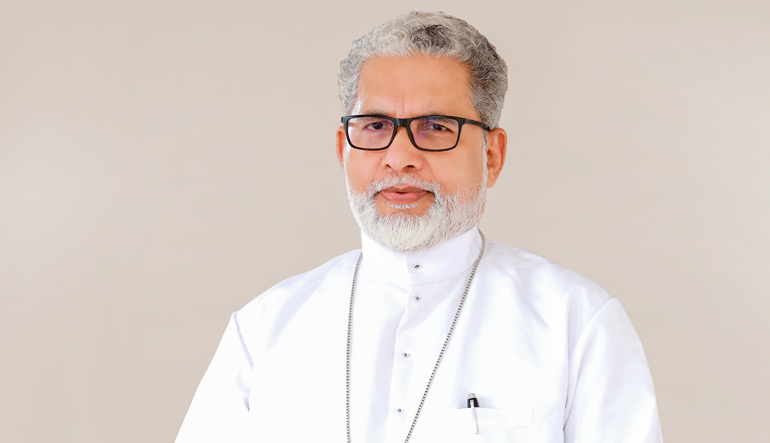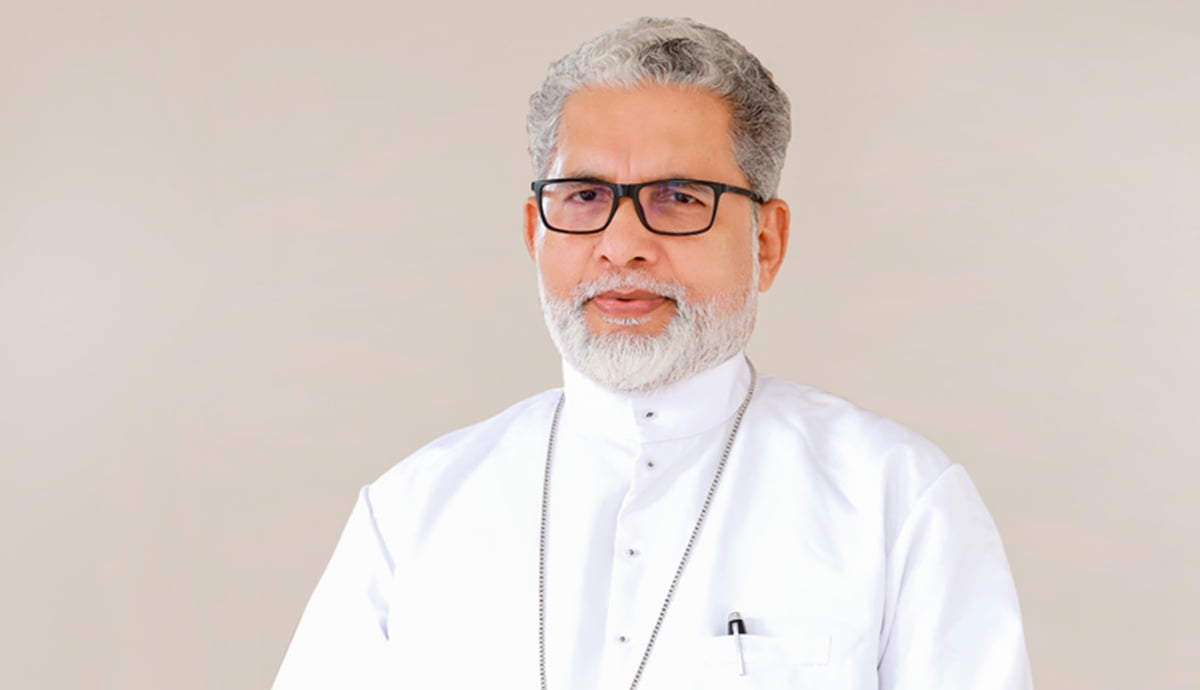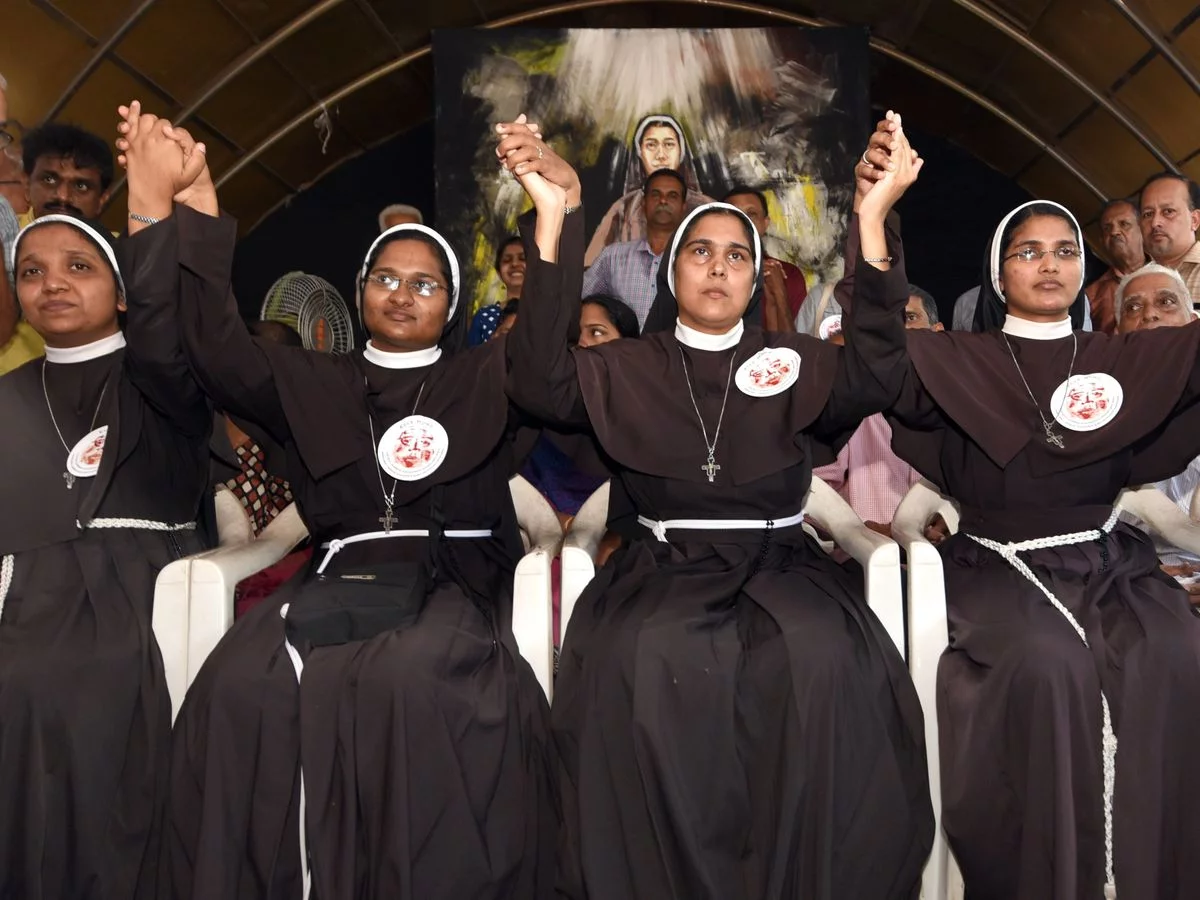The recent “narcotic-jihad” and “love-jihad” comments by Joseph Kallarangatt, a bishop of Kerala’s Pala diocese has sparked a controversy. In heavily Islamophobic remarks, the catholic bishop stated that, “jihadis are out there to annihilate non-Muslims”.
He further explained, “The narcotic jihad is the activity of spoiling the life of non-Muslims, particularly youths, by making them addicted to drugs. Various types of drugs are being used in ice-cream parlours, hotels and juice corners run by hardcore jihadis. They are using various types of drugs as a weapon to spoil non-Muslims”.
Adding to his narcotics jihad statement, he said “Youths in Kerala are facing an unprecedented crisis. The most important issues are love jihad and narcotic jihad. In a democratic country like ours, jihadis have realised that they cannot destroy other communities by using arms. The jihadis are using other weapons which cannot be identified easily by others.”
Also read: Call For Genocide Against Muslims, Police Apathy—Sanctioned By The Centre’s Extremism
Drug addiction is a serious problem and there should be measures taken to tackle the issue. But, we fail to understand how the religious leader correlated addiction to drugs with any particular religion. These kinds of statements immediately go on to add a communal colour to a serious problem like drug addiction, the roots of which could be traced back more effectively to incumbent socio-political and economical structures that leave out certain sections of the society. What remarks like the ones made by Joseph Kallarangatt instead do is perpetuate hatred towards other religious communities.

Drug addiction is a serious problem and there should be measures taken to tackle the issue. But, we fail to understand how the bishop correlated addiction to drugs to any particular religion. These kinds of statements immediately go on to add a communal colour to a serious problem like drug addiction, the roots of which could be traced back more effectively to incumbent socio-political and economical structures that leave out certain sections of the society. What remarks like the ones made by Joseph Kallarangatt instead do is perpetuate hatred towards other religious communities.
Commenting on the issue, the Kerala Chief Minister Pinarayi Vijayan also mentioned it was the first time he was hearing about “narcotic jihad”. “There is no need to give religious colour to narcotics. People in higher echelons of society should be chary about creating fissures in society with such comments.” he had said. Religious minorities like Muslims are already vulnerable to the looming threat of communal violence and these kinds of remarks could aggravate the situation not just in Kerala, but in states across India.
According to the “Crime in India” report released by National Crime Records Bureau (NCRB), the year 2020 saw a 96% increase in the cases of communal violence compared to 2019. 857 cases were registered in 2020 compared to 438 in 2019.
Additionally, words by a religious leader with considerably strong influence can have an adverse impact on the views of people towards other religions. It can create differences between the different religious communities and can further increase the feelings of Islamophobia that is already spreading its venom across the globe. Just a few days after the bishop’s Islamophobic comments, two food processing companies in Kerala owned by Muslims became the target of a communal hate campaign.
While Congress political leaders like V.D. Satheesan have openly criticised the Bishop’s remarks, the right-wing ruling party is already using the comments to foment communal division. Criticising the Bishop’s remarks, senior congressman and leader of opposition V.D. Satheesan said that, “Bishop’s statement had ‘crossed a line’. Crime has no religion, caste or gender and attributing caste and religion to severe mental defects is akin to discrimination”.
Meanwhile, BJP spokesperson Tom Vadakkan said, “The intervention by Bishop, His excellency Joseph Kallarangatt of Pala, Kerala during sacred worship is not just a wakeup call for his dioceses, it is the voice of the community who are victims of love jihad and the fallout of narco-terrorism. The cases of love jihad and drug abuse victims are ramping up.” The comments of BJP party leaders do not come as a shock. Since 2014, BJP has taken various steps that showcases the discrimination towards religious minorities particularly Muslims.
The political parties use the communal divide to its advantage. The polarising results of the riots serve as an advantage to political parties especially right-wing parties. For example, the tension fuelled by nurturing the seeds of communal divisions in people’s minds such as promises like a Hindu rashtra and Ram Rajya were instrumental in the victory of BJP in the 2014 national elections. It looks like they are following the same strategy by supporting Bishop’s anti-Muslim remarks.
Religion has come to be an extremely sensitive topic in India. The actions taken by the BJP government or its supporters in the name of Hindu nationalism is not only normalising communal violence but also maligning the image of India as a country with “unity in diversity”.
Also read: Gendered Islamophobia: A Question Of Dehumanisation Of Muslim Women
While the bishop’s followers and BJP came out in support of his comments, it was heartening to see a group of nuns protesting against the anti-Muslim views. In Kerala’s Kuruvilangad convent, nuns walked out of the Sunday mass, accusing a priest of the Church made anti-Muslim remarks in line with Bishop’s Joseph comments. The four nuns had earlier courageously campaigned against Bishop Franco Mulakkal, who was accused in the case of a rape of a nun.

The Muslim Coordination Committee also organised a protest to show their disapproval against the Bishop’s anti-Muslim comments. Over 200 people participated in the march in front of the bishop’s house, who were stopped by police barricades.
Although the Indian government is obliged to protect religious and other minority populations and fully and fairly prosecute the ones spreading discrimination and violence against them under the international human rights law, there is yet no case registered against the bishop.
Kerala CM Pinaayi Vijayan ruled out any move to register a case against the bishop, stating that creating enmity between communities was not the purpose of Bishop’s remarks. He added that “The Bishop delivered the speech from the pulpit to believers. He had not made a public statement. Hence, the government believed there was no legal ground for any case against the prelate”.

The decision of the Kerala government, which could also be interpreted as an appeasement measure towards the Christian community, to not file a complainant against the bishop’s remarks will only encourage more people to openly spread communal hatred in the name of protecting the people of one’s community.
However, the decision of the government, which could also be interpreted as an appeasement measure towards the Christian community, to not file a complainant against the bishop’s remarks will only encourage more people to openly spread communal hatred in the name of protecting the people of one’s community.
Be it an influential figure like Joseph Kallarangatt or anyone else, there should be suo motu cognisance of those who discriminate based on ethnicity, caste, sex, race or religion. Instead of making it a political agenda and encouraging the comments spreading communal hatred, there should be serious action taken against them.
Featured image source: TheWeek
About the author(s)
Pragati Parihar is a masters student, studying International Relations at University College Dublin, Ireland, and is highly interested in topics such as feminism, gender based violence, and gender representation in politics. Also a travel enthusiast and an avid reader of mythology!




